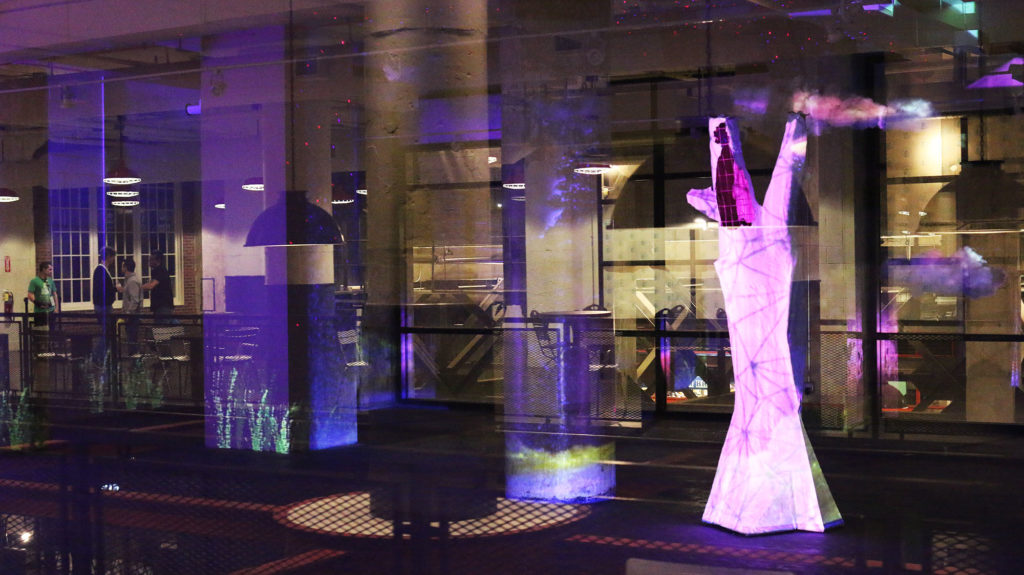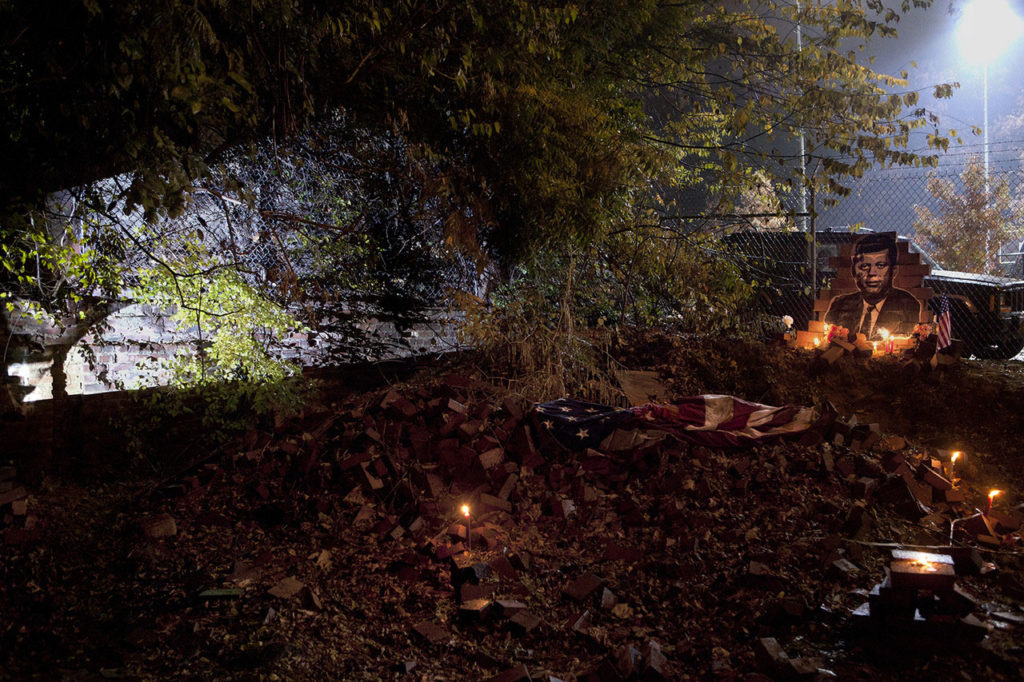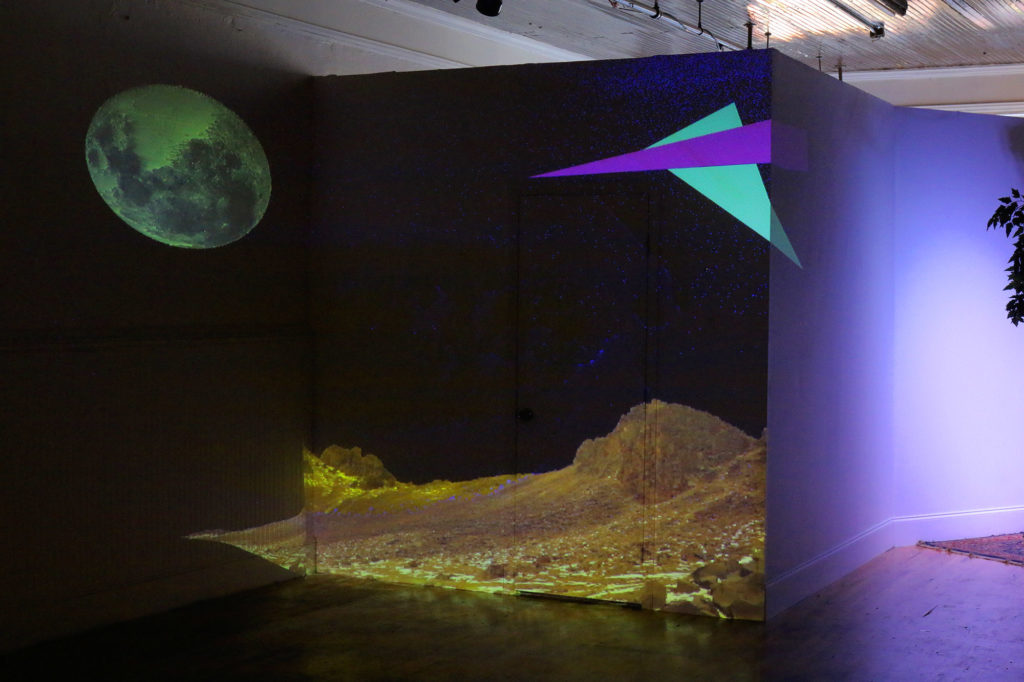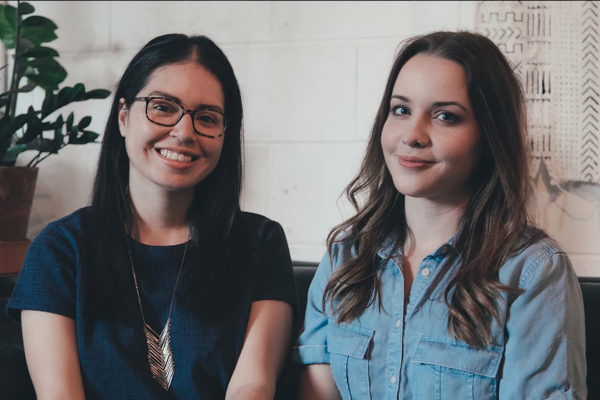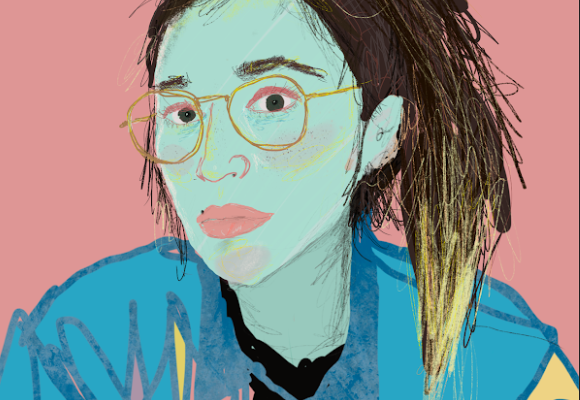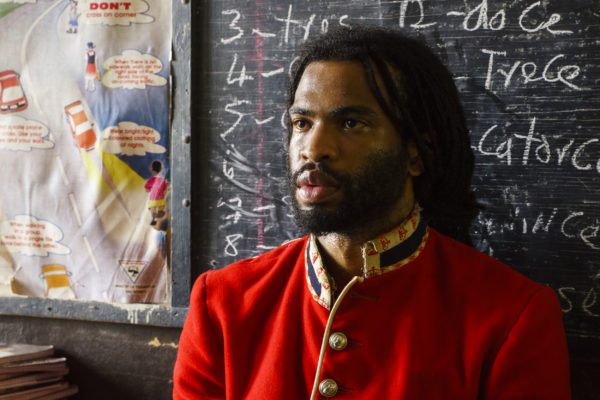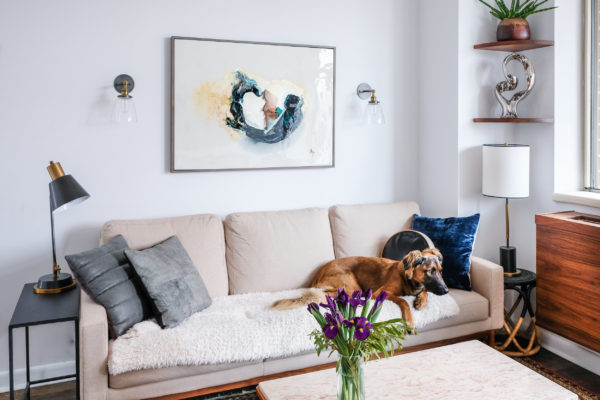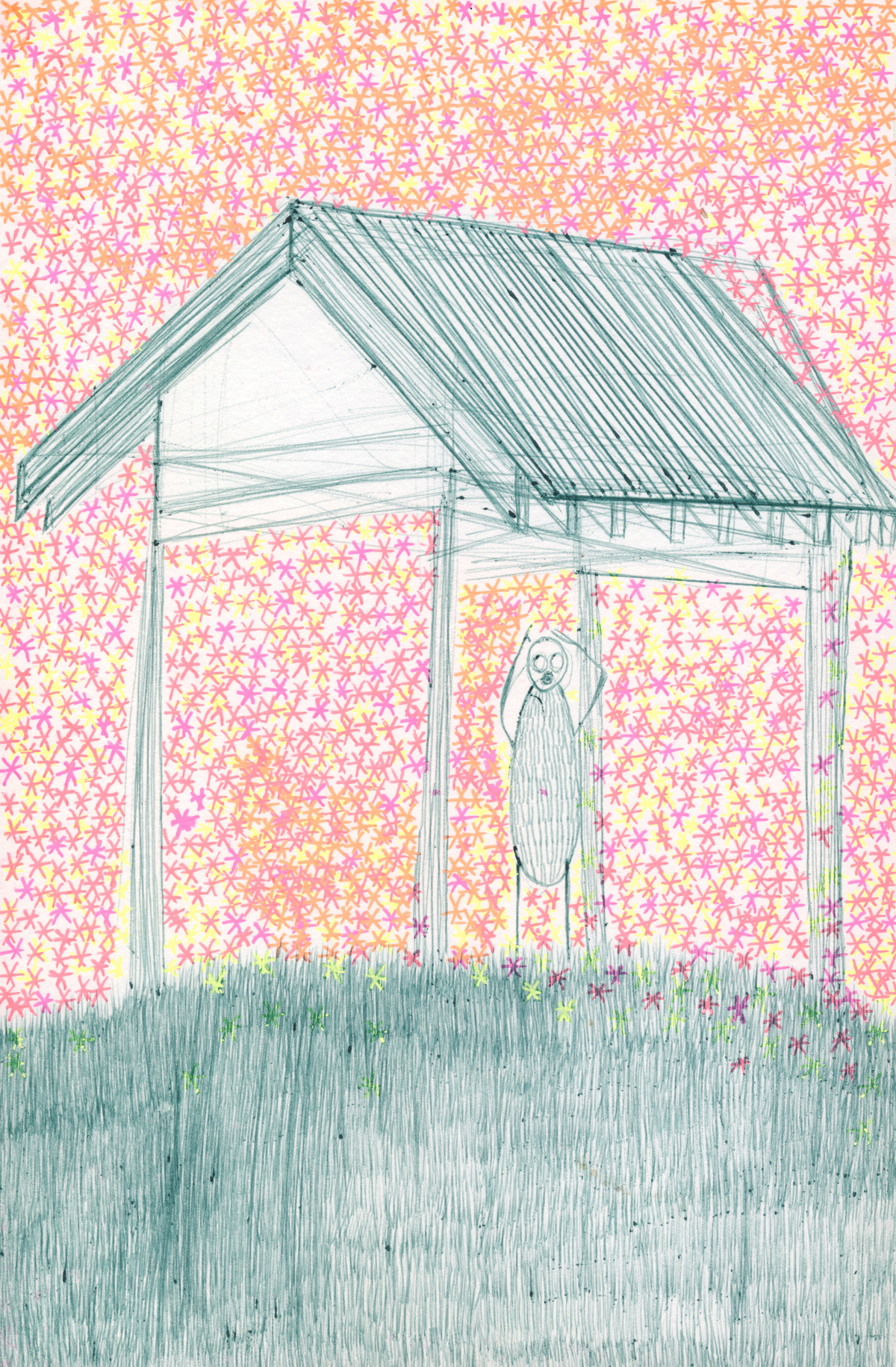Kris Pilcher has an inspiring love for Atlanta. His passion for the city was shown during last year’s ELEVATE Atlanta, where Pilcher turned a dumpster into a wishing well as part of the event’s commissioned dumpster installations. He invited visitors to share their hopes and wishes for the city on a card that read: “This is your Atlanta. What is your wish?” Earlier this year, he was awarded the Emerging Artist Award by the Atlanta Office of Cultural Affairs.
While he feels most at home with his installation work, Pilcher also dabbles in 2-D and video. His work draws inspiration from science fiction, street art and theatrical philosophies, and often invites the viewer to participate with his work. He’s also immersed in Atlanta’s arts scene as owner of the Downtown Players Club and Chief Visionary Officer at the Dream Collection Agency.
Here, Pilcher talks to CommonCreativ about being native Atlantan (a rarity these days), UFO culture, and how he successfully promotes himself and his art.
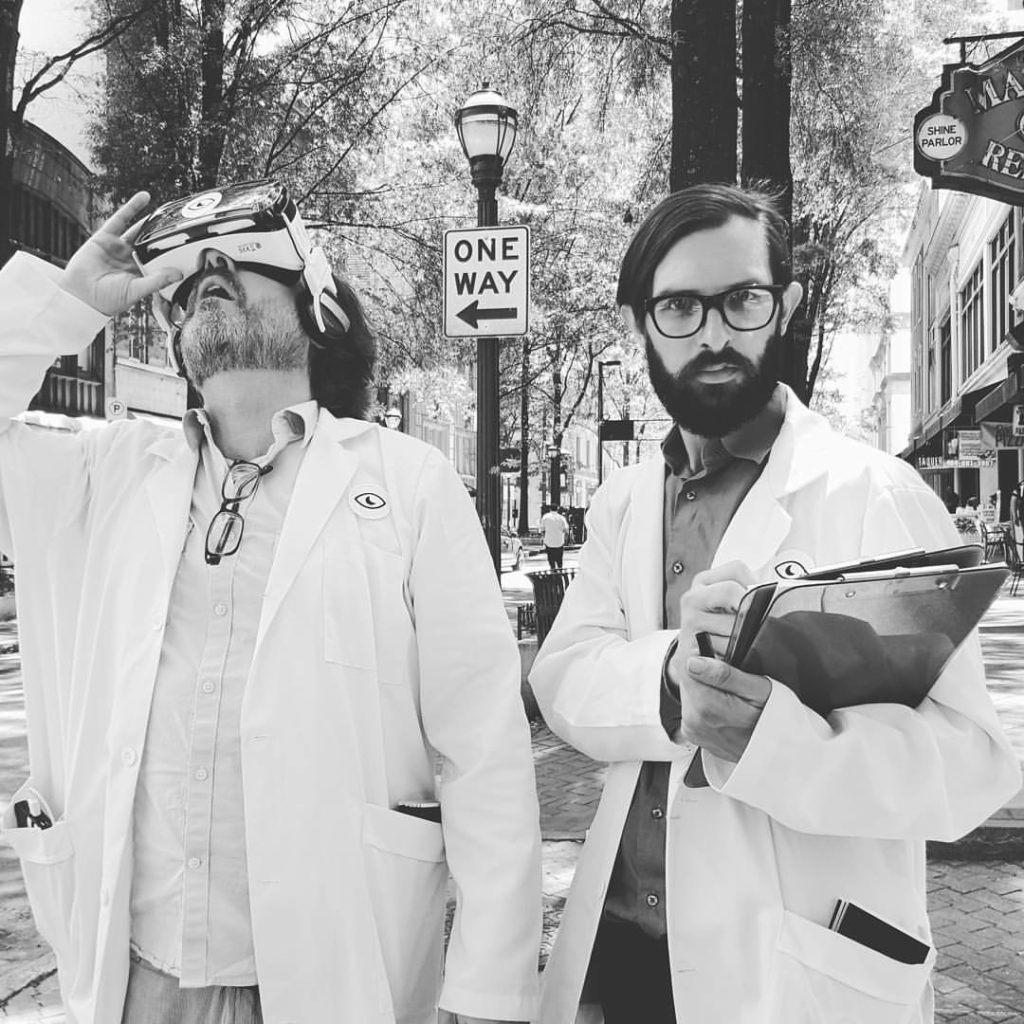 CommonCreativ: You received the city’s Emerging Artist Award earlier this year—congrats! How has this influenced your career as an artist so far?
CommonCreativ: You received the city’s Emerging Artist Award earlier this year—congrats! How has this influenced your career as an artist so far?
Kris Pilcher: Thank you! It was quite the honor to receive this award, and I’m still blown away by it. The recognition has definitely had a positive effect on my career and has allowed for some really unique opportunities. I’m busier than I’ve ever been, and I would encourage anyone who is thinking about applying for support from the Office of Cultural Affairs to go for it.
CC: You’re a lifelong Atlantan, correct? What first sparked your interest in art?
KP: That’s correct, and I don’t see myself leaving anytime soon. Atlanta is not only my home, it’s my passion, and I hope I can use my unique skill set to help create a more progressive city. We are in a very particular time and place that allows for creatives to thrive, and I’m very thankful for that. I grew up encouraged to use my imagination, whether it was creating elaborate sets for self-written plays in the dining room, or spending endless hours crafting with beads and pipe cleaners. I spent some time in my youth learning the finer aspects of graffiti writing before discovering a more productive creative outlet in live theater, which led me to where I’m at now.
CC: You work with 2-D art, installation work and video. What media catches your eye the most as an artist?
KP: Installation art is perhaps the medium that comes most naturally to me, given my prior history of set design and prop building. Altering space to create a new environment is a very powerful ability. I am very entranced with video work because, given today’s technology, the possibilities are nearly endless. I also enjoy spending inordinate amounts of time at a computer screen.
CC: You’ve had a lot of great mentors, from Richard Hill to Jeffrey Watkins. Why are mentorships important for your growth as an artist?
KP: Mentorships and professional development courses are amazingly important, as they open you up to worlds of information that can really only be obtained through time and experience. I knew at a young age, thanks to artists like Richard Hill, that it was possible to make a living as an artist when this is usually discouraged or seen as some flight of fancy. Jeff has consistently given me great advice concerning the more business-minded aspects of the art world, while professional development programs can add more tools to your pipeline.
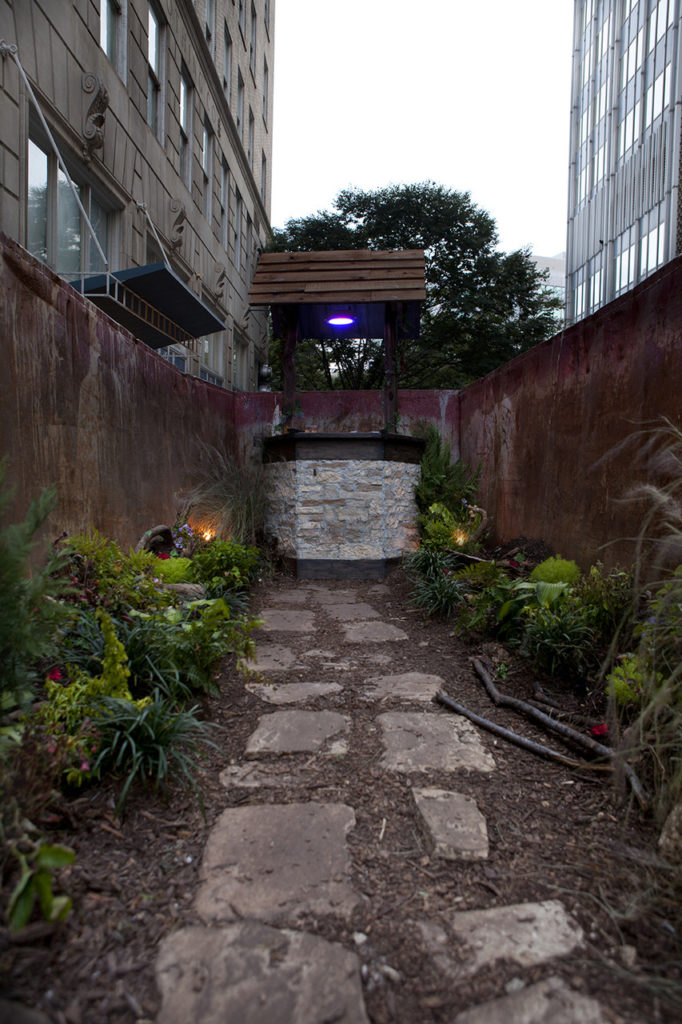 CC: A lot of your work is based on making others aware of their shared realities. What’s your creative process, and how do you achieve this awareness?
CC: A lot of your work is based on making others aware of their shared realities. What’s your creative process, and how do you achieve this awareness?
KP: My creative process is a bit difficult to define given the amount of different mediums and types of projects I work with. A good portion of my process is spent on research and [taking] time to really explore the themes or tools necessary for the current situation. I’m known to completely cut myself off from the outside world at times, and I believe these periods of self-imposed isolation allow me the opportunity to explore the depths of my own experience in this reality. I consider creation and research types of meditation. Meditation is an investigation of the self and when you really begin to examine yourself is when I believe you can begin to call into question your preconceived notions of what reality is and can be. Through my work I like to present opportunities for the viewer or participant to question themselves as well, using my self-discoveries as a jumping-off point. Reality and our participation in it is a very tacit form of knowledge that is difficult to share, and I consider sharing that knowledge the most cherished of opportunities.
CC: What inspires you?
KP: I am inspired by so many things: The internet and our rapidly advancing technology, science fiction, Fortean science and esoterica, UFO culture, street art, urban environments, the limits (or lack thereof) of human experience and knowledge, and simply the act of existing.
CC: What are some of your greatest artistic achievements?
KP: My greatest artistic achievement is the fact that I have received some recognition and validation of my work. There are milestones that are important to me, such as participating in ELEVATE Atlanta, having my work exhibited internationally, and opening Downtown Players Club, but the biggest achievement to me is simply the validation of my peers and colleagues.
CC: Do you have any dream collaborations with other local artists?
KP: There are so many people in town I have collaborated with and so many more that I would love to work with. Atlanta is full of talent. Here’s a short list: Michi Meko, Paul Stephen Benjamin, Kirstin Mitchell, Shana Robbins, Dana Hauegaard and Jordan Stubbs. Also, Nate Turley and his Hololens. I really need a Hololens.
CC: How do you promote yourself?
KP: First and foremost, get involved and meet everyone you can. Attend openings, volunteer for organizations and events, lend an artist a hand with an install, just make yourself known. Secondly, pounce on any opportunity that comes your way: Hang work at that coffee shop, apply for that grant, and increase your visibility at every chance. Make good work, and don’t sit around waiting for opportunities to come to you.
If you are having a hard time getting work into a group exhibit, find a space and curate your own. In my earlier days, I rented old grocery stores, gas stations and warehouses, put together a group of like-minded artists and invited everyone I met. Put social media to work for you, it’s one of the most valuable marketing tools at your disposal. Be prepared to set aside everything else—you’re probably going to have some hard times, emotionally, physically and financially, but it takes 100 percent if this is something you really want to do. Give it time as well, artistic success doesn’t happen overnight. I’ve been at this job for over a decade, and I feel like my career is just beginning. I didn’t even attend art school, so never let anyone tell you that you can’t. You have the ability to manifest whatever it is that you may want.
CC: What do you think about Atlanta’s current creative scene?
KP: Atlanta’s creative scene is thriving, obviously. I believe we have a long way to go as far as inclusivity, but I have seen many people working hard to help take care of that. I would like to see more opportunities for mid-career artists so that creatives don’t hit a wall and our city then suffers from brain drain as artists seek opportunities elsewhere. I’m impressed with the amazing amount of new talent coming on the scene. I can’t wait to see our bureaucratic institutions acknowledge the valuable contributions our creatives bring to the city and offer us some help beyond financial support. Let’s work on subsidized housing and work space for artists and let’s use our hotbed of creativity to advance Atlanta on the international scene. Artists, musicians and creators of all types need to stick together for the betterment of us all.
CC: What’s next for you?
KP: I’m still working on developing my “Well Wishes” project from ELEVATE into a digital platform, so expect that to be released soon. A lot of my attention is now going to the Downtown Players Club and the South Broad Street area because I believe we have a really important opportunity to help change the development landscape in town by creating a model that doesn’t rely on overpriced condos and “hand-curated” material goods. I am also looking for opportunities to present my work abroad.
You can see more of Kris Pilcher’s work on his portfolio site.

